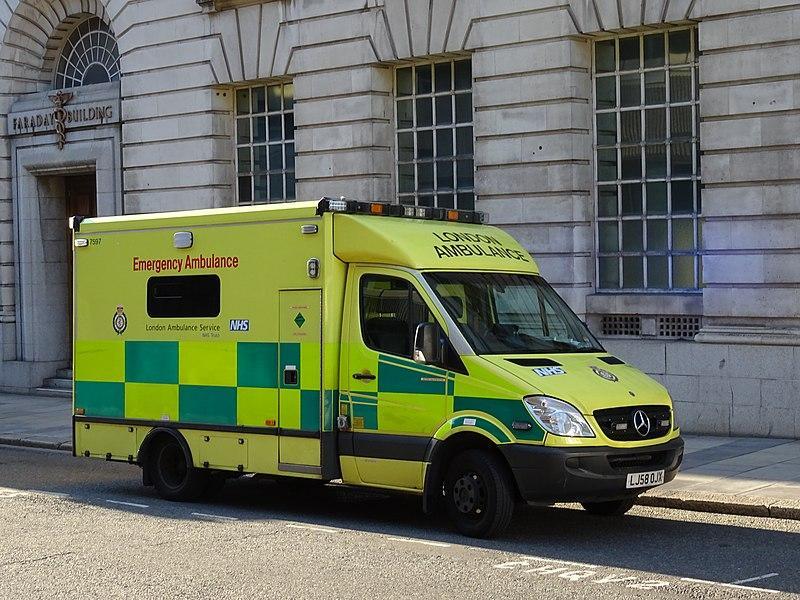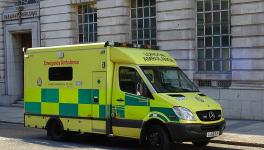Thousands of UK Nurses, Ambulance Crews Strike, Demand Pay Hikes as Inflation Mounts

Representational Image. Image Courtesy: Wikipedia
London, Feb 6 (AP) Tens of thousands of nurses and ambulance staff walked off the job in the U.K. on Monday in what unions called the biggest strike in the history of the country's public health system.
The walkout is the latest in a wave of strikes that has disrupted Britons' lives for months, as workers — especially in the public sector — demand pay raises to keep pace with double-digit inflation.
Teachers, train drivers, airport baggage handlers, border staff, driving instructors, bus drivers and postal workers also have all walked off their jobs in recent months to demand higher pay.
Teachers, health workers and many others say their wages have fallen in real terms over the last decade, and a cost-of-living crisis fuelled by sharply rising food and energy prices has left many struggling to pay their bills.
Britain's annual inflation rate was 10.5% in December, a 41-year high.
The Conservative government argues that giving public sector staff pay increases of 10% or more would drive inflation even higher.
The strike piles more pressure on the state-funded National Health Service, already staggering under demand from winter viruses, staff shortages and backlogs built up during the COVID-19 pandemic.
Nursing unions say emergency care and cancer treatment will continue during their 48-hour walkout, but thousands of appointments and procedures are likely to be postponed.
The ambulance service says it will respond to the most urgent calls during a daylong strike.
But Business Secretary Grant Shapps said the strike could put lives at risk, leaving people with “a postcode lottery when it comes to having a heart attack or a stroke.”
Sharon Graham, general secretary of the Unite union representing some ambulance staff, said Sunday there were “no talks at any level whatsoever with the government” about pay.
She urged Prime Minister Rishi Sunak to “come to the table and negotiate — roll your sleeves up and negotiate on the pay in the NHS — that is what's required."
Pat Cullen, head of the Royal College of Nursing union, also said a “meaningful” pay offer from the government could bring the strike “to a swift close.”
The unions are seeking a pay raise for the current year, but the government says it will only talk about the year ahead. Health Secretary Steve Barclay urged unions to call off the strikes, “look forward and engage in a constructive dialogue” about pay for 2023-2024.
Monday's nursing strike affects England.
In Scotland and Wales — which have semi-autonomous governments in charge of health policy — unions have suspended walkouts while negotiations continue.
Sunak's government has angered unions by introducing a Bill that will make it harder for key workers to strike by setting ”minimum safety levels” for firefighters, ambulance services and railways that must be maintained during a walkout.
Get the latest reports & analysis with people's perspective on Protests, movements & deep analytical videos, discussions of the current affairs in your Telegram app. Subscribe to NewsClick's Telegram channel & get Real-Time updates on stories, as they get published on our website.
























